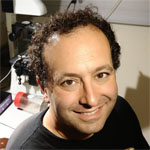Yesterday the US Food and Drug Administration sent a letter to the human genetic testing company 23andMe giving them 15 days to respond to a series of concerns about their products and the way they are marketed or risk regulatory intervention. This action has set off a lot of commentary/debate about the current and future […]
-

Michael Eisen
 I'm a biologist at UC Berkeley and an Investigator of the Howard Hughes Medical Institute. I work primarily on flies, and my research encompases evolution, development, genetics, genomics, chemical ecology and behavior. I am a strong proponent of open science, and a co-founder of the Public Library of Science. And most importantly, I am a Red Sox fan. (More about me here).
I'm a biologist at UC Berkeley and an Investigator of the Howard Hughes Medical Institute. I work primarily on flies, and my research encompases evolution, development, genetics, genomics, chemical ecology and behavior. I am a strong proponent of open science, and a co-founder of the Public Library of Science. And most importantly, I am a Red Sox fan. (More about me here).
I can be reached at:
mbeisen at berkeley.edu
and @mbeisen on Twitter-
Recent Posts
- The Tragedy of Lander
- The abysmal response of the Salk Institute to accounts of gender discrimination in its midst
- Patents are destroying the soul of academic science
- Replace Francis Collins as NIH Director
- Exploring the relationship between gender and author order and composition in NIH-funded research
Categories
- #occupy
- AAP
- academic freedom
- baseball
- Berkeley
- bioethics
- cool science
- CRISPR
- Darwin
- EisenLab
- EisenLab preprints
- ENCODE
- epigenetics
- evolution
- gender discrimination
- gene regulation
- genetics
- genome size
- GMO
- HeLa
- HHMI
- intellectual property
- math
- microbial manipulation of animal behavior
- misc stuff
- My lab
- NIH
- NOT junk
- open access
- PLoS
- politics
- public access
- publishing
- race
- science
- science and culture
- science and politics
- Uncategorized
- University of California
- war on science
- Wikipedia
- women in science
